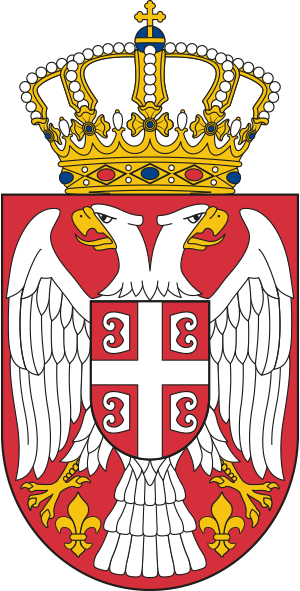Interview with Miloš Matić on financing Serbian start-ups
ПОДЕЛИ
Miloš Matić, ICT Hub Venture: “In today’s world, people need to create opportunities themselves”

Miloš Matić, a partner from the first private fund that finances start-ups – ICT Hub Venture – talked to us about the start-up ecosystem in Serbia. He assessed our start-up scene and pointed to the main shortcomings of Serbian start-up ecosystem while commenting its position in relation to the other European countries. He shared with us what would contribute to improvement of the scene, and commented on the possibilities of Serbia Creates and similar initiatives and platforms to make impact in this topic.
Can you give an assessment of the start-up ecosystem in Serbia?
That’s a difficult question. I would give a six or seven out of ten, because we are not so perfect. There are many things that could be improved, including the law, taxes, additional incentives, and the development of the history of entrepreneurship in the country. We still have the mentality from the old Yugoslavia, when we had everything in order. In today’s world, people need to be enterprising and create opportunities themselves. I expect that assessment I just gave increases to eight or nine out of ten in the next five years, because I see how the ecosystem is changing.
The biggest indicator of change is the fact that people from well-paid corporate jobs, for example, senior managers of international corporations who have good salaries for our conditions, are increasingly deciding to resign and start a business of their own. Talented teams of people with corporate experience who start their own companies, are extremely good for cooperation.
These teams and people are ready for mentoring, suggestions, have more life experience, analytical skills and overall a better understanding of the industry in which they want to do business. They usually stay in the industry in which they worked, adding some new value. They already have initial capital with which they can use, and this makes our job easier as investors, because if someone is ready to invest their own money in it, it proves to me that they are mature enough to continue investing.
What I see as a big challenge in the development of our ecosystem is looking for talent, especially in the IT world. Talent is more expensive, especially in the pool of IT engineers – they are becoming very valuable because there are very few of them.
How is it possible that today we have a shortage of talented people for the development of the start-up ecosystem?
All good software engineers who graduate from the best Serbian universities get recruited by large corporations in the first or second year of study. They very quickly get used to the high salaries and benefits that these jobs bring and do not have the will to leave such jobs.

Data presented by “StartIt” show that start-ups in Serbia raised 21.3 million euros in 2020, while in Croatia and Romania those numbers are 13 and 10 times higher. What do you think about that?
Croatia has a really strong ecosystem. They have well-connected hubs, centers, well-connected company founders with the rest of Europe. However, all those investments that they record are in the two or three start-ups. “Infobip” (Infobip) is one that I can not characterize as a start-up because it is a corporation that has existed for 10 years. In Croatia, there is also “Rimak” (Rimac). Most of the investments they receive are usually made by these companies. The valuation of Infobip to a billion dollars is something that completely knocked them out of the average. In addition, they have good incentives from the state. Through capital, through a couple of funds that they opened together with the European Investment Fund, they have a very strong community that is ready to communicate. This is what we work on as a community (networking, networking with people, openly talking about ideas, connecting), because it is something we lack.
Entrepreneurs of Serbian origin who have made a name for themselves in the world are incredibly connected, they all know each other and can connect in two steps. That should happen here in Serbia as well.
How close or far are we from Romania in terms of technological development?
That is the beauty of technology, it is constantly evolving, so developing countries can very quickly catch up with the most advanced countries on the technological side. We are not that far, we can catch the connection with everyone in the region very quickly.
Romania has a very good aid package for development centres. The same package will be for us, the exemption from taxes on salaries and capital invested in R&D. In two to three years, I expect some progress.
What is extremely positive is that we are now working on a national strategy for start-up companies, that for the first time it will be defined by law, which is a great opportunity. The tendency of the state to support the development of an innovative ecosystem is seen.
We have recently had great and notable successes, such as the purchase of “Nordeus” for almost 400 million dollars, and shortly before that, “Anari AL” raised an investment of 2 million. Previously, we have acquisitions and jumps of “Seven Bridges”, “Embroker”, “Devana” … Many dice need to be put together for something like this, but can we single out some key reasons for such successes?
These are successes, but considering the phase in which we are as an ecosystem in the development phase, that is only one of the steps. I expect that we will have sales much higher than we currently have.
We are still in the activation phase, we have just developed a critical mass of 300 to 400 start-ups that are officially registered. We are creating a momentum of entrepreneurship.
When an even greater critical mass is created and conditions are created for greater capital to be invested in domestic start-ups, then the amount of acquisitions will be higher. Domestic capital and foreign capital that will be present here will give companies more time to develop, to create more value and thus, in the end, to sell for a higher price.
How many initiatives and platforms like Serbia creates, Digital Serbia Initiative, Tesla Nations, Serbia Entrepreneurs can and should help develop the start-up scene in Serbia?
We as organizations should initiate changes. On the other hand, we should be met by someone who is ready to listen. Lately, we have interlocutors who want to listen. All the changes we want to happen are very slow. We should try to speed up those things. And the state itself will rely on us when we say exactly what we need. It will probably be difficult to change the system of foreign currency payments or it is almost impossible, but it must be made known that it is not valid and that it is holding us back. The national strategy for start-ups seeks to make an exception for start-ups from the law. The law itself will not be changed, but an exception should be made so that they can do business more freely and faster. Changes and administration need to be faster to keep up with the pace of start-ups, because if we can’t keep up with their pace, they will go, they will go where they can be best served.
How much do digital innovation hubs and investment funds that are with start-up companies or cooperate with them do and can do?
 We strive to create a community of people who develop solutions for business users, to reduce the risk of their failure. Usually, if we believe in that solution, we connect them with the clients, we enable them the first inflows so that they can continue to develop. Education is organized in the form of programs for sales, marketing, specialized programs for various things. We are internationally connected, this ecosystem is not left to develop on its own, but it must develop in the entire region. We are still a small market for ever and should be considered. It is necessary to connect with all the countries of the Western Balkans in order to share information, experiences, start-ups, in order to increase the mobility of people. The greater the mobility, the greater the exchange of experience and knowledge. Over time, this should produce some value. Wherever we think the start-up development environment is better, we usually try to steer it in that direction. This is what our new project “Serbia Innovates” is doing.
We strive to create a community of people who develop solutions for business users, to reduce the risk of their failure. Usually, if we believe in that solution, we connect them with the clients, we enable them the first inflows so that they can continue to develop. Education is organized in the form of programs for sales, marketing, specialized programs for various things. We are internationally connected, this ecosystem is not left to develop on its own, but it must develop in the entire region. We are still a small market for ever and should be considered. It is necessary to connect with all the countries of the Western Balkans in order to share information, experiences, start-ups, in order to increase the mobility of people. The greater the mobility, the greater the exchange of experience and knowledge. Over time, this should produce some value. Wherever we think the start-up development environment is better, we usually try to steer it in that direction. This is what our new project “Serbia Innovates” is doing.
We have two investment funds: ICT Hub Venture and South Central Ventures. ICT Hub Venture is a much smaller fund compared to South Central Ventures, which is an institutionalized fund and has existed for many years in our country. Unfortunately, the impact of investment funds can be very limited. As for the foreign capital that should come to us, we are not interested in the current situation. They can give advice, but they will not interfere much in our domestic affairs. When they invest, they pull the company out of Serbia and incorporate it anywhere abroad. They want the continuity they are used to working on.
There are several attempts to gather all Serbian start-ups and start-ups working in Serbia in one place, through Start-up Scanner, Crunchbase, but how can we get a clear picture and when could we expect it?
There is a tendency, not only to make a local start-up base, but also to build the whole ecosystem on some platforms. No matter what the platform is, it is important that it connects us to the world, that others see that we exist. With the strategy, we will certainly get that legal framework, get an outline plan of what needs to be done for the next 5 years, not only by us, but also by the administration.
The benefits can be great if everything is used properly. Debates are of very high quality. There are exceptionally high-quality people who I have the pleasure to meet through this working group, there are members in the field of administration and in the field of economy. Recommendations come from the economy and then it is checked and assessed whether the administration can fulfil it, what are the capacities. I expect that this will contribute to a better understanding of where we should go.
What is missing on the start-up scene of Serbia, what are the steps, what should we do next?
To have a community of enterprising people, a community of interesting solutions that produce some interesting, innovative solutions, more funds, more capital, and have a developed investment chain. It is important to have domestic capital, we must not just rely on foreign capital, where that foreign capital will immediately distract our talent elsewhere and draw those companies away from Serbia. I would like only business, but also the flow of capital and collection, to be facilitated.
Many good start-ups fail to raise capital at an early stage or do not even want investors. We need to work on educating people about raising investments.
 Are the needs and challenges of young and new start-up companies (early bird stage) at home and abroad different?
Are the needs and challenges of young and new start-up companies (early bird stage) at home and abroad different?
For those early stages of start-ups, accessibility and willingness to invest equity or to find additional capital at such an early stage (idea phase, research phase) – we miss angel investors. They can contribute a lot to young companies, serving as the first filter and the challenger of the start-up itself. I can filter out their ideas, mentor them, connect them with other people, and generally implement that culture of entrepreneurship. Usually, these angel investors are successful entrepreneurs who have achieved some results, so they will transfer that energy and knowledge to those teams, and also give them some of the initial capital, so that they can risk a little more leisurely.
When it comes to that level when you need to charge for all those services, especially in the beginning, the problem with us is always the payment of foreign currency payments. Once a start-up is proven in the local market, it is easy to invoice to domestic entities and collect your receivables in the domestic market. If you go abroad, then there are a few complications regarding payments, inflows and everything else. This can be a brake and this is usually the main reason why start-ups establish a secondary entity abroad, in order to have better and easier collection and easier tax visibility. First of all, I mean Estonia, Ireland, the Netherlands. The United Kingdom is now also becoming a market where a start-up can very easily get tax relief, register, receive significant support not only from the ecosystem but also from the regional office that connects industries and entrepreneurs under the auspices of the state. We need to analyze what is there to see if we can provide some approximate level of such service in our country.
How much work really needs to be done on education and which target groups? Is it a target group of 30 to 50 who will potentially invest / support in some way or connect with other people? Or do you need to educate a younger group, from 9 to 18, to know what they need to do later?
I would say that we should enter primary schools and start from that young generation. Those children have to grow up with the awareness that there is entrepreneurship, there is something where you can build something of your own.
We should encourage people to take more risks through the education system. There should be a regular subject of “entrepreneurship” in secondary schools. Entrepreneurship should be shown to everyone as an option. Educate, show what it all brings with it.
The challenge with that is who will show all that, who will be the lecturer, because there is no school for entrepreneurship. The program of educating children in schools should not lead them to start their own business during school, but only to be aware that it exists. If there is a desire to develop that entrepreneurial note in that person, he should know that there are hubs that other organizations can turn to. We don’t need to serve them all for sure. We need to involve young people in the research situation, so that they don’t have ready-made answers that they can get by googling. They need to know to be persistent, to lead. Maybe that note of leadership is essentially what we lack.
I finished high school in America and from my experience I came to some conclusions. It seems to us that our educational system is much better than the American one in terms of the amount of knowledge that an individual received after high school. It’s not like that. We just burden our people, but our people don’t think. Their students know how to think, they know how to take risks, they know how to express their ideas. They are ready to defend themselves with arguments. There is a system there – the more you contribute, the more you will be rewarded. What exists in every American school is an academic advisor, they are like psychologists in our country. A lot of students do not know what they will do with themselves, where they will go, which faculty, they are there to guide them, to help them with that decision. We need to reduce the amount of material in our country and teach people to think, to research and teach them that when they need something, they know where to look.

























